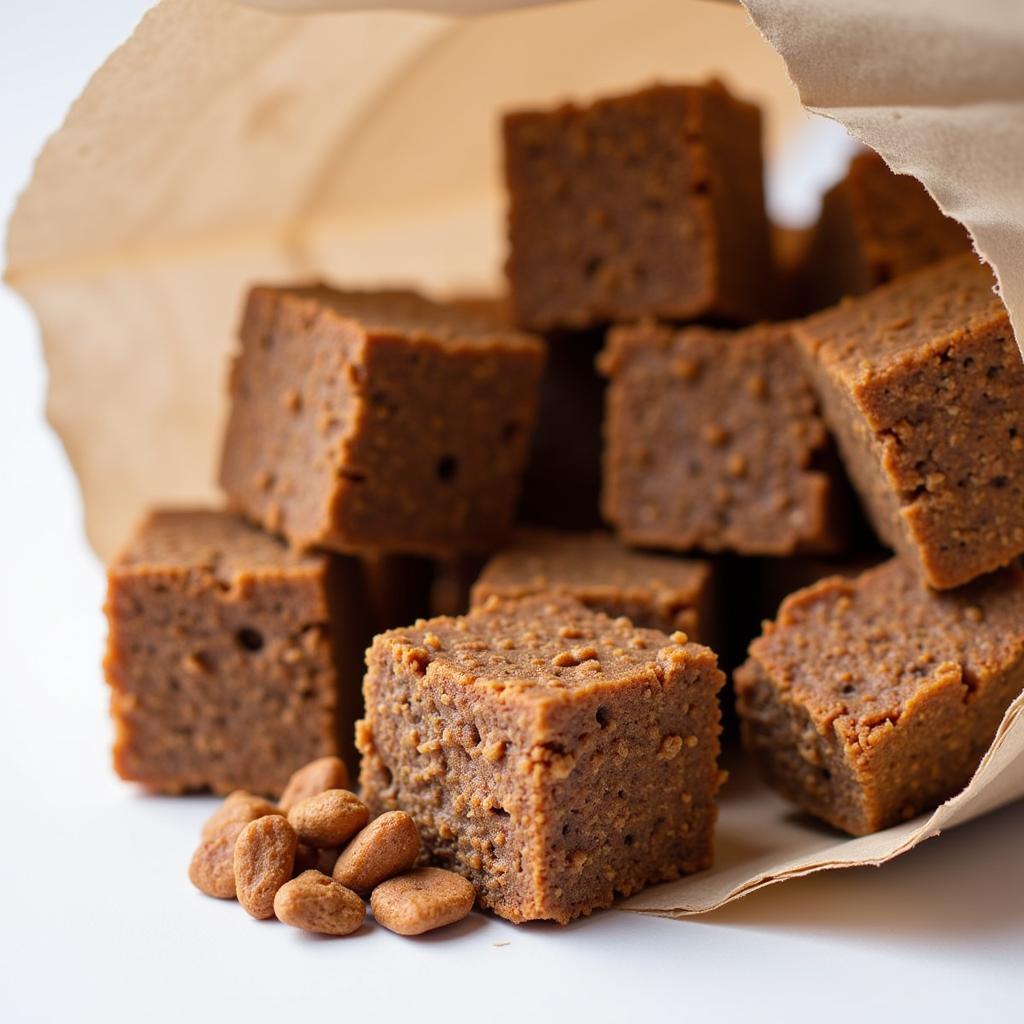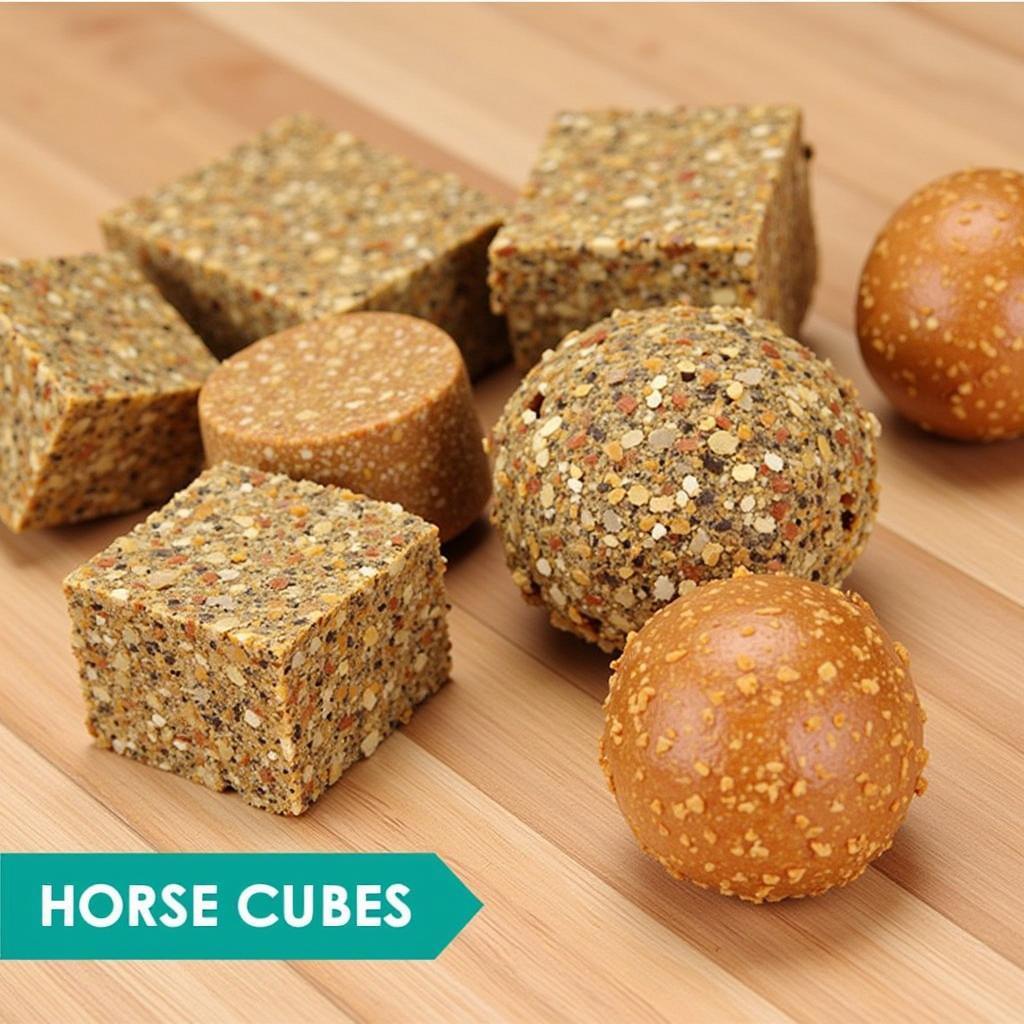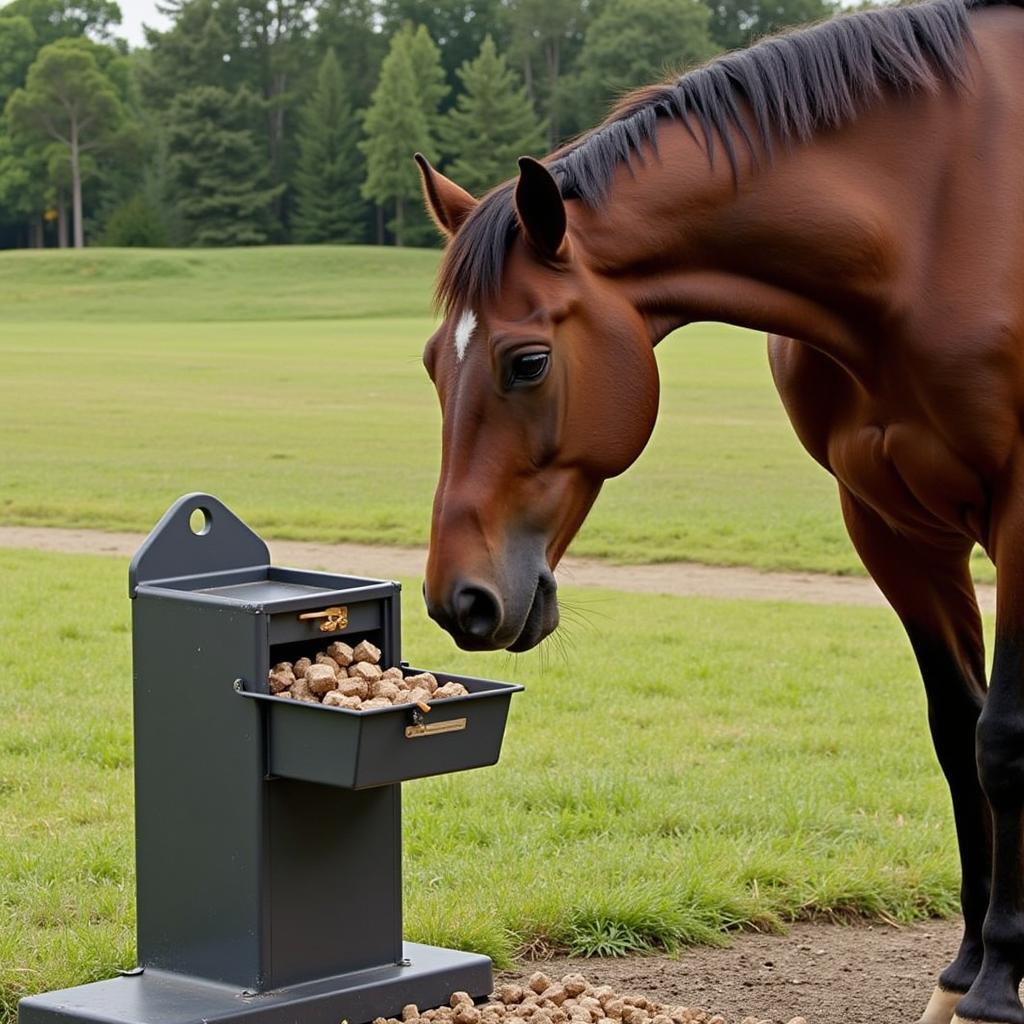Horse Cubes are a popular feed choice for horse owners, offering a convenient and often cost-effective way to supplement a horse’s diet. But what exactly are horse cubes, and how can you choose the right type for your equine companion? This guide will delve into everything you need to know about horse cubes, from their nutritional content to their various uses.
What are Horse Cubes?
 Close-up of Horse Cubes
Close-up of Horse Cubes
Horse cubes are a type of concentrated horse feed made from a variety of ingredients that are blended, compressed, and cut into cube shapes. They typically contain a mix of forages like alfalfa or grass, grains like oats or barley, and added vitamins and minerals.
Benefits of Feeding Horse Cubes
Horse cubes offer several advantages over traditional hay and grain feeding:
- Convenience: Cubes are easy to transport, store, and feed, making them a practical option for horse owners on the go.
- Less Waste: Compared to loose hay, cubes result in less waste, as horses are less likely to scatter or trample them.
- Controlled Portions: Cubes allow for accurate feeding, ensuring your horse receives the appropriate amount of nutrients.
- Improved Digestion: The compact nature of cubes can slow down consumption, potentially reducing the risk of choke and promoting better digestion.
Types of Horse Cubes
 Various Horse Cube Formulations
Various Horse Cube Formulations
A wide variety of horse cubes cater to different needs:
- Alfalfa Cubes: High in protein and calories, suitable for growing horses, lactating mares, or hard keepers.
- Timothy Cubes: Lower in calories and protein compared to alfalfa, ideal for easy keepers or horses with metabolic issues.
- Mixed Grass Cubes: Offer a blend of grasses, providing a balance of nutrients.
- Complete Feed Cubes: Designed to be fed as a sole ration, containing all the necessary nutrients a horse needs.
- Senior Cubes: Formulated with easily digestible ingredients and added supplements for older horses.
Choosing the Right Horse Cube
Selecting the appropriate horse cube depends on several factors:
- Age: Growing horses, senior horses, and pregnant or lactating mares have specific nutritional requirements.
- Activity Level: Working horses need more calories and protein than horses used for light riding or leisure.
- Body Condition: Adjust the amount and type of cubes fed to help your horse maintain a healthy weight.
- Health Conditions: Some horses may benefit from specialized cubes designed for specific health issues, such as those with metabolic disorders or digestive sensitivities.
It’s essential to consult with your veterinarian or an equine nutritionist to determine the best type and amount of horse cubes for your horse’s individual needs.
Introducing Horse Cubes to Your Horse’s Diet
When introducing horse cubes, do so gradually. Start by replacing a small portion of your horse’s regular hay ration with cubes and slowly increase the amount over several days or weeks.
 Horse Enjoying Cubes From a Feeder
Horse Enjoying Cubes From a Feeder
Always ensure your horse has access to fresh, clean water when consuming horse cubes, as they can expand in the stomach and increase the risk of dehydration.
Horse Cubes and Legacy Horse Care
Just like with any feed change, it’s crucial to monitor your horse’s health and condition when introducing horse cubes, especially with a legacy horse that might have specific dietary needs. Look for any signs of digestive upset, weight changes, or changes in energy levels.
Conclusion
Horse cubes offer a convenient and versatile feeding option for horse owners. By understanding the different types available and considering your horse’s individual needs, you can make informed decisions about incorporating this feed source into their diet. Remember, consulting with your veterinarian or an equine nutritionist is always recommended to create a balanced and appropriate feeding program for your equine companion.
FAQs About Horse Cubes
Q: Can I feed horse cubes as the sole source of nutrition for my horse?
A: While some complete feed cubes are designed to be fed as a sole ration, it’s crucial to consult your veterinarian to ensure the chosen cube meets your horse’s specific nutritional needs.
Q: How should I store horse cubes?
A: Store horse cubes in a cool, dry place, ideally off the ground and protected from moisture and pests.
Q: Can horse cubes be soaked before feeding?
A: Yes, soaking horse cubes, especially for older horses or those with dental issues, can make them easier to chew and digest.
Q: What are the signs that my horse may be having trouble digesting horse cubes?
A: Signs of digestive upset can include colic symptoms (pawing, rolling, flank watching), loss of appetite, diarrhea, or weight loss. Contact your veterinarian immediately if you observe any of these signs.
Q: Are horse cubes suitable for all horses?
A: While horse cubes can be a valuable feed source for many horses, they may not be appropriate for every horse. Horses with certain medical conditions, dental problems, or those prone to choke may require alternative feeding options.
Need More Help?
For further information on horse care and feeding, explore these helpful resources:
Have more questions about horse cubes or need personalized advice for your horse? Don’t hesitate to contact us! Our team at Justus Horses USA is dedicated to providing you with expert guidance and support.
Call us at: 0772127271
Email us at: [email protected]
Visit us at: QGM2+WX2, Vị Trung, Vị Thuỷ, Hậu Giang, Việt Nam.
We’re here to assist you 24/7!